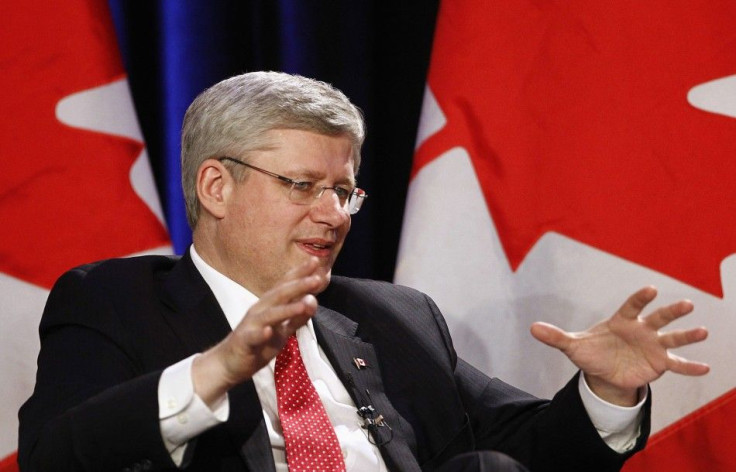Canadian Federal Government Poised to Reduce Taxes

It's like receiving an early Christmas gift. Canada's federal finance government on Tuesday hinted that Canadian families and individuals are up to receive relief from their tax burdens. But analysts think the hype is just part of the election propaganda for 2015.
Finance Minister Joe Oliver, at a two-day confab with business leaders about the state of Canada's economy, said tax reduction is a government priority in the 2015 budget. He noted the federal government has been forecast to incur a $6.4-billion surplus in 2015.
The announcement came after Fraser Institute on the same day released a report that said Canadians are spending their hard-earned money more on tax obligations than on fulfilling their basic needs.
The report highlighted that from 1961 to 2013, the average Canadian family's total tax bill has jumped by 1,832 per cent, compared with 1,375 per cent for housing, a 620 per cent in clothing costs and 546 per cent for food.
"If you asked people to name their household's biggest expenses, many would likely say housing, but in reality the average Canadian family spends more on taxes than all basic necessities including housing," Charles Lammam, resident scholar in economic policy at the Fraser Institute and co-author of the Canadian Consumer Tax Index, said.
Apart from reducing taxes, Oliver said the government targets to pay its debts once it returns to surplus.
"We're not in a position where we have to take draconian steps. We're not looking to an austerity budget, but we're absolutely determined to proceed in a fiscally responsible way," he said.
But opponents such as Trish Hennessy, director for the left-leaning Canadian Centre for Policy Alternatives in Ontario, believed the tax cuts is already a non-essential and that it would only benefit the rich.
She told Yahoo Canada News that tax contributions have helped fund and develop universal public health care, a public pension programme and university. "Seventy years ago we didn't have these. These are but three examples of public programs that our tax contributions fund - and that benefits all Canadians."
She said what the federal government must be more focused on is improving the services delivery of public programs. "Good jobs. Better retirement security. Affordable child care. That's the conversation I'd like to see Ottawa lead," she said.
"At some level, I think we can appreciate that taxes are a necessary part of funding the fundamentals, like good public services. That's where the focus should be on Parliament Hill."





















